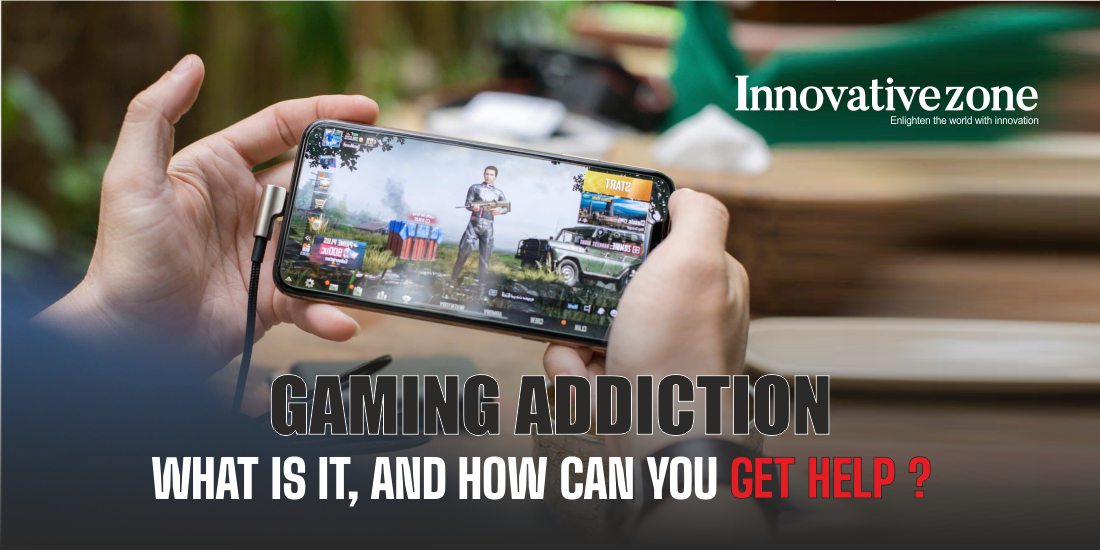Gaming Addiction: What is it, and how can you get help?
Despite their long history at the forefront of popular culture, the discussion and study of video game addiction is still in its infancy. As a result, the understanding of video game addiction is yet to trickle down into public consciousness, meaning many cases are left undiagnosed and—worse—many who need help end up without any.
That’s where we (the gaming community) come in. It’s up to us to get clued-in about what gaming addiction is, how to recognise it and how to seek help—be it for ourselves or others. So, let’s take a closer look at exactly that.
What is Video Game Addiction?
As it sounds, Video Game Addiction is an addiction to video games—but such a definition isn’t very helpful. So, let’s go a step deeper.
It can exist for any type of game—be it online, offline or anything else. The key warning signs are thinking about the game a lot of the time—in a way detrimental to other everyday activities—and strong negative feelings when unable to play. With such symptoms lasting over extended periods of months or years.
Of course, many of us will find ourselves daydreaming about jumping back into our favourite experiences. The key differentiator is that these thoughts and feelings will impede on other everyday activities—such as impacting the individual’s engagement in social settings or at school or work.
We’ll break down all the criteria in the next section.
It’s also worth noting that Video Gaming Addiction has not yet been formalised in the DSM-5 (the manual published by the American Psychiatry Association). However, the World Health Organization (WHO) has acknowledged “gaming disorder” in the 2018 version of its International Classification of Diseases. These discrepancies mean that some psychiatrists and psychologists are better prepared for dealing with video game addiction than others.
How to Spot Video Game Addiction
The following list breaks down the criteria proposed for video game addiction. To qualify, according to the proposed model, an individual needs to experience five or more of these signs within the same year. But remember, even if someone qualifies this does not necessarily mean that they suffer from Video Game Addiction—this is due to psychology being incredibly complex and intertwined. Thus, if you suspect video game addiction in yourself or another it’s important to not self-diagnose—instead you should seek the opinion of a professional.
The criteria include:
- Being mentally preoccupied by gaming a lot or all of the time.
- Having negative feelings when unable to play.
- Withdrawing from other activities in order to game, especially activities you previously enjoyed.
- Feeling unable to quit or play less.
- Using gaming as a method of stopping negative moods/feelings.
- Requiring increasing time playing to reach satisfaction.
- Developing problems socially or at school/work due to gaming.
- Denying and lying about how much time spent gaming.
- Continuing to play even when identifying issues.
Again, to qualify an individual should experience five or more of these criteria for extended periods within the same year.
It can be hard to approach these questions, and be honest, both to yourself and to a loved one. Thus, if you feel that you or someone you know may be suffering from gaming addiction be sure to approach the issue sensitively and with compassion.
Where to Find Help?
Whether for yourself or someone else, after identifying a potential issue with gaming addiction the most important step is to seek professional help. Due to the complexity of human psychology, consulting a professional doctor, therapist or psychiatrist is essential to ensure that the problem is video game addiction and not something else.
However, it is important to remember that dealing with addiction can be an incredibly intense and emotional experience. Thus, it is vital that the person with the suspected condition can feel comfortable to discuss their experience. This can mean leaving egos and emotions at the door in order to truly listen to the person—or if you are the one looking for help, to find someone you truly trust to share the concern with whether that be a family member or a close friend.
Remember, once the problem is out in the open it is much easier to deal with.
When looking for guidance from professionals, your options will vary greatly depending on your country’s health system. Private consultations can be expensive, but hugely valuable as you can gain access to professionals more quickly. While public services may take longer to address the issue but can do so more affordably.
As previously mentioned, the study of video game addiction is still young, meaning so are its treatments. Current treatments mainly revolve around CBT (cognitive behavioural therapy) which aims at changing thoughts and behaviours through counselling.
If I were to break down the method of getting help about video game addiction it would be to first educate yourself on the basics, then to locate professional help. And if you’ve made it through this article congratulations—you’ve already started the process.
If you enjoy online games, in moderation, Eldorado offers a way to get ahead without needing to sink hours into grinding. You can get your hands on high-level accounts, items, in-game currency and boosting for all the top titles—from World of Warcraft to Grand Theft Auto Online.


